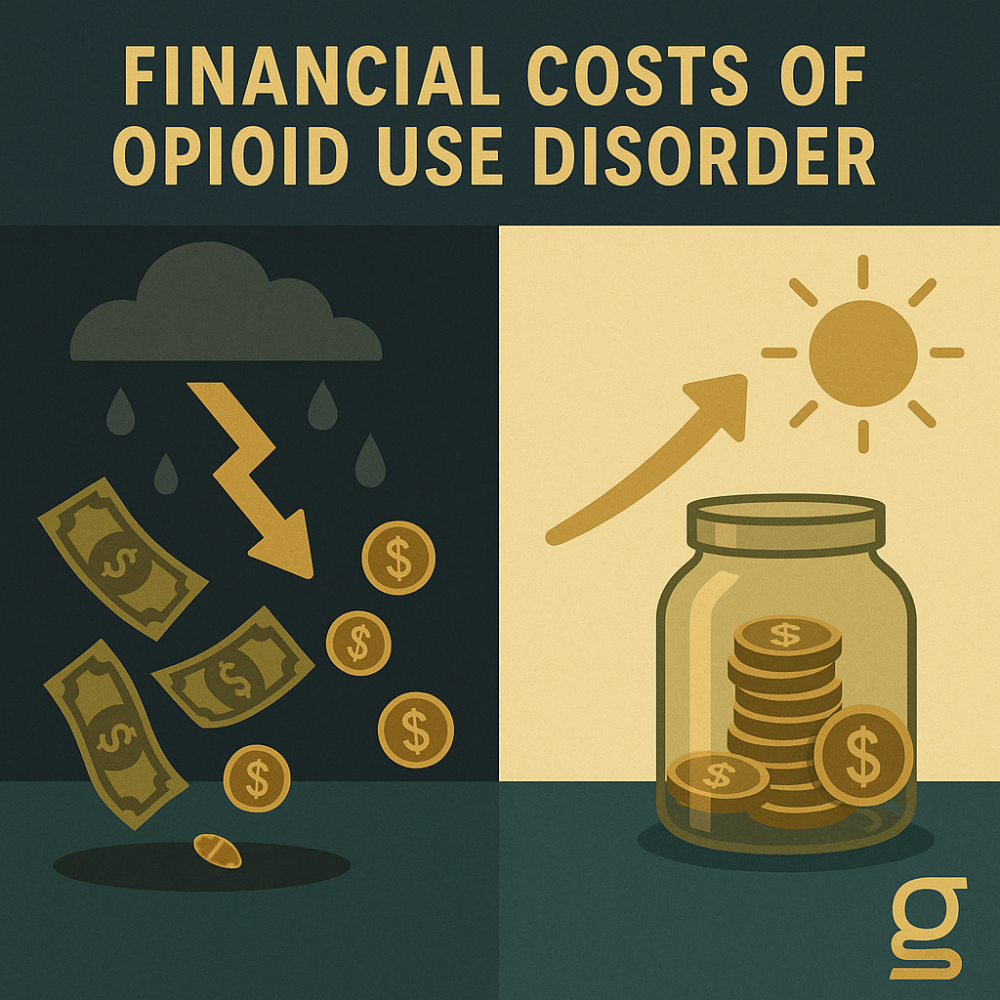Motivational interviewing (MI) is a client-centered counseling approach that has gained recognition for its effectiveness in addressing Substance Use Disorder (SUD). By engaging individuals in conversations that explore their motivations for change, MI empowers them to take ownership of their treatment journey.
Motivational Interviewing and Substance Use Disorder Treatment (SUD)
Substance Use Disorder, commonly referred to as SUD, is a complex condition that affects millions of individuals worldwide. It is characterized by the recurrent use of substances despite significant negative consequences on physical, mental, and social well-being.
Motivational interviewing is a counseling style that has emerged as a valuable tool in substance misuse treatment, helping individuals overcome their ambivalence toward change and evoking intrinsic motivation for recovery.
By employing a collaborative and client-centered approach, motivational interviewing techniques empower individuals to explore their personal values, set goals, and make sustainable changes in their lives to overcome substance misuse.
What is Motivational Interviewing?
At its core, motivational interviewing is a directive yet empathetic approach to counseling that aims to elicit and strengthen an individual’s motivation for change. It is built upon four essential principles of motivational interviewing:
- Expressing empathy: Creating a non-judgmental and supportive atmosphere where individuals feel understood and accepted.
- Developing discrepancy: Helping individuals recognize the discrepancy between their current behavior and their desired goals, thus enhancing their motivation for change.
- Rolling with resistance: Resisting the urge to confront or argue with individuals in resistance, instead opting for a collaborative approach that respects their autonomy.
- Supporting self-efficacy: Evoking confidence in individuals by emphasizing their ability to make positive changes and reinforcing their past successes.
Motivational interviewing employs various techniques, including open-ended questions, reflective listening, affirmations, and summarizing. These techniques facilitate a deep exploration of individuals’ thoughts, feelings, and behaviors related to alcohol and drug use, ultimately guiding them toward positive change.
What to Expect in the Motivational Interviewing Process for Addiction Treatment
Entering the process of motivational interviewing for Substance Use Disorder (SUD) treatment can be both exciting and daunting. Here are some key aspects of the motivational interviewing process and what individuals can anticipate:
1. Collaborative Partnership
Motivational interviewing is characterized by a collaborative partnership between the individual and the Therapist.
Rather than taking a directive approach, professionals work alongside individuals, honoring their autonomy and expertise in their own lives. This partnership creates a safe and supportive space for open and honest conversations about substance use, addictive behaviors, and change.
2. A Focus on Exploration and Self-Reflection
Motivational interviewing encourages individuals to explore their thoughts, feelings, and experiences related to substance use. Therapists use various techniques to facilitate this exploration, such as open-ended questions, reflective listening, and affirmations.
Through self-reflection, individuals gain a deeper understanding of their motivations, values, and the impact of substance use on their lives.
3. Recognition of Ambivalence and Resistance
Ambivalence, or mixed feelings about change, is common in individuals with substance use disorder. Motivational interviewing acknowledges and respects this resistance, recognizing that individuals may simultaneously have internal motivation to change and feel apprehensive or uncertain about it.
Additionally, resistance to change may arise during the process. Instead of meeting resistance with confrontation, motivational interviewing views it as an opportunity for exploration.
Therapists may employ techniques like reflective listening and reframing to understand the underlying reasons for resistance and collaboratively address them.
4. Goal Setting and Action Planning
Setting goals is an essential component of motivational interviewing. Therapists work with individuals to identify specific and meaningful goals that align with their values and aspirations. These goals can range from reducing substance use to complete abstinence, depending on the individual’s readiness and circumstances.
Once goals are established, therapists assist individuals in developing an action plan. This plan outlines the steps and strategies individuals will take to achieve their goals. It also takes into account potential barriers and challenges, ensuring that individuals are equipped with the necessary tools and support to navigate the journey toward change.
5. Ongoing Support and Accountability
Motivational interviewing recognizes that change is a process that requires support and accountability. Throughout the process and stages of change, therapists provide ongoing support, guidance, and encouragement.
Regular sessions are scheduled to review progress, celebrate successes, and address any setbacks or challenges. The therapist-client relationship becomes a source of trust and encouragement, fostering a sense of safety and commitment to the recovery journey.
6. Reflection and Evaluation
Reflection and evaluation are integral parts of the motivational interviewing process. Individuals are encouraged to reflect on their progress, setbacks, and the changes they have experienced. Professionals facilitate this reflection by asking thought-provoking questions, eliciting change talk, and summarizing the individual’s journey.
Through regular evaluation, individuals can gain insight into their growth, identify areas for improvement, and celebrate milestones. This reflective process supports individuals in recognizing their strengths, reinforcing their motivation for change, and maintaining their commitment to a substance-free life.
The Evidence Base for Motivational Interviewing for Addiction Treatment
Motivational interviewing has been extensively researched and has demonstrated efficacy in various domains, including SUD treatment. The facilitation of numerous studies has highlighted the effectiveness of MI in engaging individuals, reducing substance use, improving treatment retention treatment outcomes, and promoting long-term recovery.
For example, a randomized trial of 105 outpatients with cocaine dependence compared detoxification and a motivational interviewing intervention with detoxification alone. Patients who received the motivational interviewing intervention increased their use of behavioral coping strategies and had fewer urine samples positive for cocaine at the start of subsequent treatment.
In another randomized trial including 118 veterans with alcohol use disorder, group motivational interviewing was found to have a positive effect on the frequency of alcohol use and attendance in treatment. Findings included a lower rate of heavy episodes and fewer alcohol use days.
Start Your Recovery Journey at Gallus Detox
Motivational interviewing holds great promise in the realm of SUD treatment programs. Its person-centered approach, emphasis on collaboration, and focus on intrinsic motivation make it an invaluable tool for individuals and their journey toward recovery.
By following the principles and techniques of motivational interviewing, individuals can address their resistance, set meaningful goals, and take a big step toward lasting change.
If you or a loved one are struggling with Substance Use Disorder, contact us to learn more about available treatment options.
FAQs
1. What is the main goal of motivational interviewing?
The main goal of motivational interviewing is to elicit and strengthen an individual’s motivation for change, particularly in the context of Substance Use Disorder (SUD) treatment. It aims to empower individuals to explore their own reasons for change, resolve ambivalence, and develop intrinsic motivation to overcome SUD.
2. How long does a typical motivational interviewing session last?
The duration of a motivational interviewing session can vary depending on various factors, including the needs of the individual and the context of the treatment. Generally, sessions can range from 30 minutes to an hour, allowing sufficient time for meaningful conversations and exploration of motivations.
3. Can motivational interviewing be used for other behavioral changes besides substance use?
Yes, motivational interviewing is a versatile approach that can be applied to various behavioral changes beyond substance use. It has been successfully employed in areas such as weight management, smoking cessation, mental health, and medication adherence, among others.
4. Is motivational interviewing suitable for all individuals with SUD?
Motivational interviewing can be beneficial for most individuals with Substance Use Disorder. However, it is essential to consider individual differences and preferences. Some individuals may respond better to other treatment approaches or may require additional interventions based on their specific needs and circumstances.


 Steve B
Steve B 

 Casey Wilson
Casey Wilson